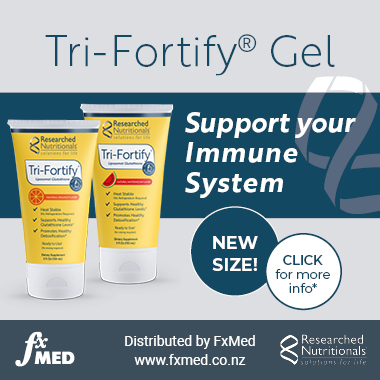Volume 36 Issue 2
Editorial – Redefining neurodivergence: the role of naturopathy and herbal medicine
Susan Arentz
For referencing Arentz S. Editorial – Redefining neurodivergence: the role of naturopathy and herbal medicine. The Australian Journal of Herbal and Naturopathic Medicine. 2024;36(2):64-65.
DOI 10.33235/ajhnm.36.2.64-65
Neurodivergent is a term used to describe people whose brain works differently to what is considered typical brain functioning. There is a lot of scientific evidence that shows considerable variation among human brains. This quarterly issue presents some of the emerging evidence for naturopathic and herbal medicine. Forms of neurodivergence include autism, dyslexia, dyspraxia, and ADHD.
Although the words ‘neurodiversity’ and ‘neurodivergence’ are sometimes used interchangeably, ‘neurodiversity’ is a term of inclusion as everyone is different, whereas ‘neurodivergence’ is a term of exclusion. Neurodivergent individuals are those whose cognitive profile diverges from an established cognitive norm.1 Prevalence of neurodivergence in its varied forms is approximately 15-20%,2 and strategies to avoid discrimination are often utilised by this minority group. Masking and camouflage is common in social settings that are dominated by neurotypical people, such as workplaces and schools,3 and this can cause stress and exhaustion and increase the risks of poor mental health.3,4 Other conditions that are common in this population include musculoskeletal complaints and chronic pain.5
Multidimensional and individualised healthcare is ideally suited. Lifestyle and behavioural techniques, and other usual care options are complemented by naturopathy and herbalism. Like all complementary and traditional medicine systems, naturopathy and herbal medicine stand apart from mainstream medicine as healthcare models as the approach is not based on a disease focused paradigm; they tend to view people as interconnected ecosystems that are part of their environments, including social environments. Their aim is to support naturally inherent healing processes and to optimise health and wellbeing. This view is distinct from typical medical approaches which tend to see individuals as discrete and autonomous and aim to improve function by reducing disease signs and symptoms.
An illustration of the distinction can be seen in naturopaths’ and herbalists’ approaches to managing neurodivergent individuals. These clinics emphasise describing and characterising each person’s uniqueness, regardless of whether medically-defined conditions are present. Systematically collecting case characteristics involves dedicating time to listen, reflect, and learn. This process itself fosters self-awareness and an appreciation of individual differences, which are powerful tools for enhancing health and well-being. In contrast to viewing neurodivergent traits as psychological disorders and social deficits,3 naturopaths’ and herbalists’ sensitivity to differences and attention to situational contexts can help leverage resources, allowing people to become more of who they are, rather than less.
This special issue presents three peer reviewed articles introducing the beginnings of an evidence base for naturopathy and herbalism. All articles focus on ADHD and we look froward to publishing articles about all forms of neurodivergence in the future.
The first is a systematic review of the evidence for mentat in ADHD. Mentat is a traditional Ayurvedic medicine that includes Centella asiatica, Bacopa monnieri and Withania somnifera and others. Twenty-three clinical trials of various quality were included in this review which found evidence supporting mentat for improved cognitive and behavioural outcomes in children and adolescents with ADHD. Nine studies investigated safety outcomes with eight reporting no adverse effects, however safe use of mentat in conjunction with pharmaceuticals was not established.
The second article is a literature review of the menstrual cycle influence on ADHD. Neurodivergent women and masking are strongly associated,3 and can lead to exhaustion and stress. This review of the literature points to the added impact of hormonal changes and things for clinicians to look out for when supporting reproductive-aged women with ADHD. Proposed herbal medicines include Vitex agnus castus and Withania somnifera and nutritional supplements magnesium and zinc.
The third article is a case study of a young woman with ADHD and the homoeopathic remedy decision process. Only some naturopaths incorporate homoeopathy into their practice. In this case study, homeopathy was used alongside lifestyle and herbal medicine recommendations. In deciding the homeopathic remedy, it is shown that including polar symptoms improved the reliability of the computational repatorisation. Polarity symptoms are those which encompass their opposite, for example, the presence of thirst and thirstlessness; a desire to move and an aversion to move; and warmth ameliorates and warmth aggravates.6
Finally first-up, this issue includes an invited commentary by Dr Jessica Bayes, a post-doctoral research fellow at the National Naturopathic Medicine Centre, Southern Cross University. Dr Jessica is the Deputy Chair and Research Officer for the Northern Rivers Autism Association (NRAA) and generously shares an overview of research and clinical care.
I hope you enjoy this AJHNM issue.
Author(s)
Susan Arentz PhD, BHSc(Hons)
Editor, Australian Journal of Herbal and Naturopathic Medicine
PO Box 696, Ashfield, NSW 2131, Australia
Email editor.ajhnm@nhaa.org.au
References
- Legault M, Bourdon JN, Poirier P. From neurodiversity to neurodivergence: the role of epistemic and cognitive marginalization. Synthese. 2021;199(5):12843-12868.
- Bell DC. Neurodiversity in the general practice workforce. InnovAiT. 2023;16(9):450-455.
- Radulski EM. Conceptualising autistic masking, camouflaging, and neurotypical privilege: Towards a minority group model of neurodiversity. Human Development. 2022;66(2):113-127.
- Miller D, Rees J, Pearson A. “Masking is life”: Experiences of masking in autistic and nonautistic adults. Autism in Adulthood. 2021;3(4):330-338.
- Ryan L, Beer H, Thomson E, Philcox E, Kelly C. Neurodivergent traits correlate with chronic musculoskeletal pain: a self-selected population based survey. OBM Neurobiology. 2023;7(1):155; doi:10.21926/obm.neurobiol.2301155
- Frei H. Polarity analysis, a new approach to increase the precision of homeopathic prescriptions. Homeopathy. 2009;98(1):49-55.






